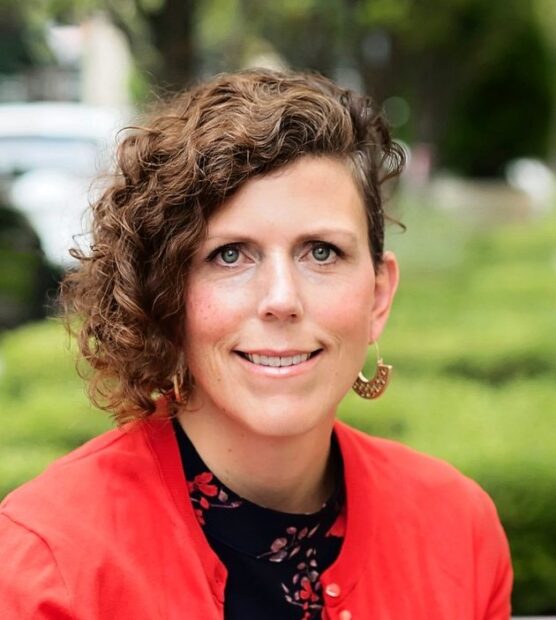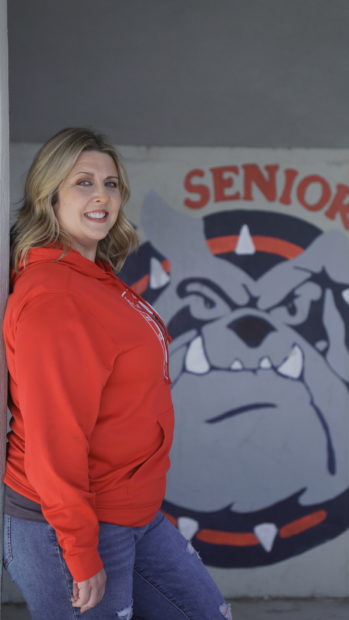TREASURE VALLEY — Self-dubbed conservative candidates for the West Ada and Nampa school boards went five-for-five on election night Tuesday, triggering incoming leadership shakeups that make shifts in power and policy likely.
On West Ada’s board, the majority opinion on mask mandates appears to have flipped from 4-1 support to 3-2 opposition. Two anti-mask mandate trustees-elect in Lori Frasure and Angie Redford will replace incumbents who last month voted to keep a requirement in place.
In Nampa, three new trustees won’t have a mask requirement to lift — the district hasn’t had one all school year — but Brook Taylor, Jeff Kirkman and Tracey Pearson have all promised to maintain that piece of the status quo. And though Kirkman said he’s open to students receiving social-emotional learning supports in a “separate class” that students would opt into, all the newcomers have voiced concerns about universal provision of SEL, as the district continues providing such mental health services despite novel political backlash.
Still, as trustees begin four-year terms in January, much remains up in the air.
Contact tracing could be gone for good in West Ada
That’s true of pandemic protocols in West Ada, where the sitting board said it would readdress its mask mandate when one of three benchmarks are met:
- Area hospitals stop rationing care amid a coronavirus surge.
- A moderate level of community coronavirus spread is reached in Ada County. (It’s high now.)
- A coronavirus vaccine is approved for use in children aged 5-11.
On election day, the CDC gave 5- to 11-year-olds the OK to receive the Pfizer-BioNTech jab, opening the door for West Ada to reconsider. But sitting trustees expressed added hesitation about lifting a mask requirement until hospitals no longer have to ration care, so it’s unclear whether the mask mandate will last long enough for new trustees to axe it in January.
But another change could be coming.

Saying strain on school nurses “should be considered,” Frasure hopes to maintain the district’s halt on contact tracing coronavirus cases, even after the mask mandate is lifted.
“The population at large — what I’m hearing from everyone, including a lot of teachers and administration — is that they would rather not do contact tracing,” she told EdNews by phone Wednesday.
Redford agreed with Frasure, whom she campaigned alongside, and pointed to “the emotional and physical toll” contact tracing has had on school nurses.
The district stopped contact tracing last month, as board members cited heavy strain on staff who were charged with keeping tabs on outbreaks. But the 4-1 majority did so with the understanding that universal masking would reduce the need for contact tracing, and with the voiced intention of restoring the practice once a mandate is lifted.
COVID-19 aside, West Ada parents shouldn’t anticipate other immediate, drastic changes, Redford said.

“I don’t have any big bold moves that I want to do Jan. 1, because I think it’s important to integrate with the board, kind of get my feet wet first,” Redford said by phone Thursday. “I think some of us conservatives have been painted by the media (as) these crazy right-wing fanatics that are gonna come in and want to fight … and I don’t want any of that.”
For longer-term actions, both incoming trustees emphasized the need to counteract education setbacks from the pandemic. Frasure pointed to a need for one-on-one tutoring, and Redford said extra help for disadvantaged students who were most impacted by the pandemic will be key.
A pivot in the west
While Nampa may not see an abrupt change in coronavirus protocols, its new board is likely to give SEL a second look. On the campaign trail, the incoming trustees called attention to SEL, which has been drawn into the divisive debate around alleged leftist indoctrination in classrooms.
The upshot, though, is not clear, and may not be immediate.
Pearson previously said, “I think (critical race theory), SEL, which is social-emotional learning, diversity, equity: Those are all intertwined. They basically tell the children and young adults … that by the color of your skin, you’re either oppressed or the oppressor.”
But Kirkman and Taylor have acknowledged a need for SEL, though they’ve criticized from different angles the way it’s currently administered.

“I see that there’s value for social-emotional learning in our schools. I do. And I understand that,” Taylor told EdNews by phone Thursday. “I think that I need to have all of the facts in front of me before I make that decision.”
Taylor doesn’t anticipate making any large-scale changes to cut back SEL or change how it’s administered in the near term. Though she floated establishing a committee of parents, students and teachers to discuss the curriculum, and said she wants to evaluate how mental health support is provided and who it is provided by before altering the district’s support network. And Taylor has concerns about teachers providing a network of support without proper training, and suggested stalling further implementation of “Second Step,” a national program, over community concerns.
The issue resurfaced this election cycle as Republican state superintendent Sherri Ybarra decried the “political posturing” around SEL, and as debates about alleged indoctrination became central to school board campaign messaging in some districts.
District spokesperson Kathleen Tuck declined to comment on how new trustees will affect SEL curriculum since the district “can’t know at this point how (the trustees-elects’ platforms) will affect our current operations.”
“As trustees are oriented to their role and work with our returning board members, we’ll get a better understanding of their vision,” Tuck wrote by email Wednesday.
The impact trustees will have on other policy areas is less clear. But they’ll be tasked with leading the third-biggest district in the state and working with administrators to do so.
Dr. Paula Kellerer said in a statement Wednesday, “We look forward to working with our three newly elected trustees once they take office in January.”
